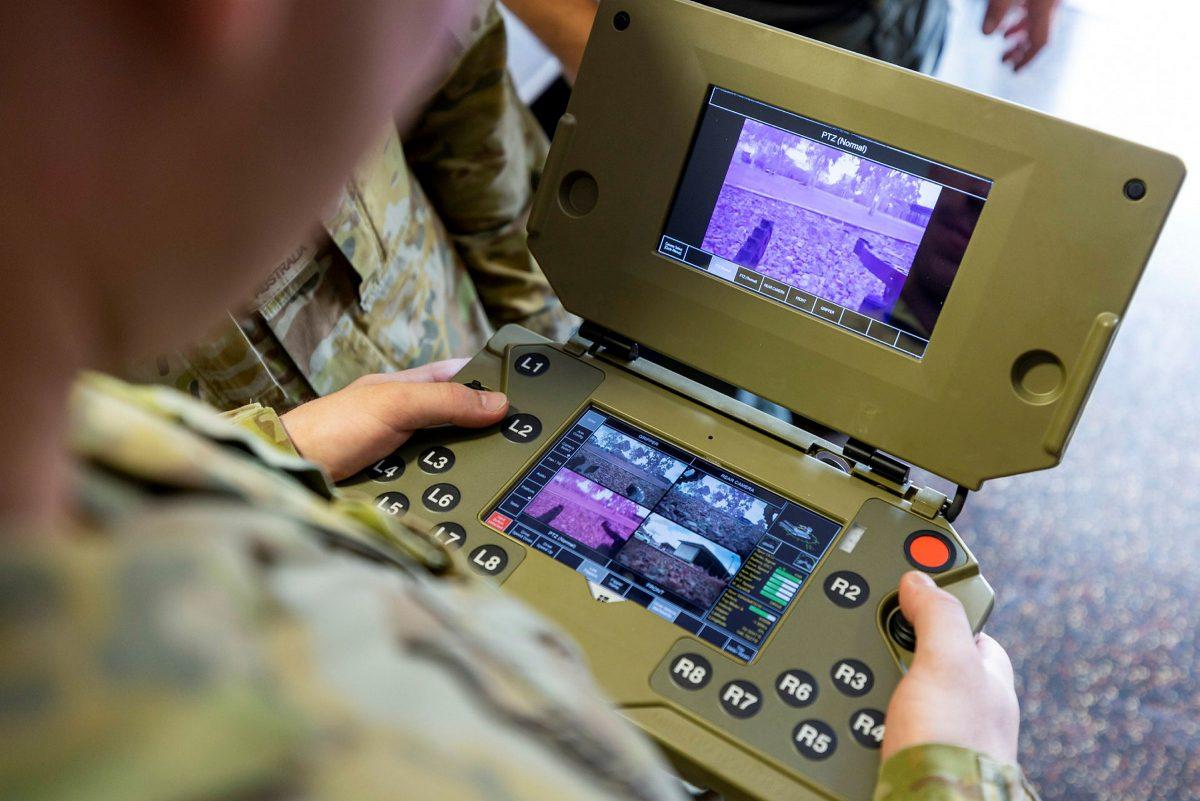
Artificial intelligence is already ubiquitous in our lives and will be foundational to our future prosperity. In Australia, the Department of the Prime Minister and Cabinet has identified AI and machine learning as critical technologies of national interest. AI applications are wide-ranging and encompass many sectors, including agriculture, education, energy, finance, health care, manufacturing, transport and telecommunications.
As a general-purpose technology, AI applications in those domains may also have implications for defence and security. Indeed, the Australian Defence Force’s ability to understand the operational environment, manoeuvre and project force will be transformed through advances in AI and human–machine partnerships, employing dual-use and defence-specific AI applications.
Innovation in AI is accelerating, creating opportunities to grow the economy, solve challenging problems, accelerate discovery and enhance national security. It’s estimated that AI could exceed $20 trillion in worth to the global economy by 2030. This potential for transformative impact, and the competitive advantages offered by AI, are being actively pursued around the world. More than 30 countries and regions had published AI strategies or similar documents by December 2020; the world’s top universities are increasing their investment in AI education; and private investment in AI continues to grow. This ongoing expansion in AI activity will bring accelerating advances across the field.
With global AI investments growing, Australia will need to remain internationally competitive in a world of expanding AI capabilities and AI-enabled operations. For defence, AI will be critical in delivering strategic objectives and maintaining a capable, agile and potent defence force. Reflecting that importance, and the need for increased self-reliance, AI is included among the new ‘sovereign industry capability priorities’ critical to defence. A sovereign capability in AI ensures Australia’s stake in a key 21st-century industry and underpins the defence organisation’s future operational and training capabilities.
Australia has some world-leading AI capabilities in universities, research organisations and industry. To expand from that base, we need to focus on AI and broader STEM (science, technology, engineering and mathematics) initiatives to build the specialist workforce required by Australian industry. Building human capacity in AI will be critical, as demand is already outstripping supply, and the need for AI specialist skills is expected to grow significantly. For sovereign activities, including sensitive work supporting the nation’s defence and security sector, the ability to draw upon an Australian AI-skilled workforce will be fundamental.
Capacity in the Australian workforce will ensure that we can maintain an effective defence force and develop the capabilities needed to meet and overcome the disruption that AI will introduce to current methods of warfare. That will require sustained investment in skills training at all levels to raise understanding of AI by managers and to further expand AI graduate and higher degree by research programs to attract and train Australian AI specialists.
Increased research and technology development, supported by long-term and sustained investments in data, tools and critical digital infrastructure, will underpin our national AI competitiveness. Through sovereign investment in AI research and development, the benefits of AI will be fully harnessed and the potential risks mitigated. Investment should include building access to sufficient computing capacity and the fast networking needed to source those capabilities.
In addition, data holdings need to be established and managed to support the development of AI applications and tools, buttressed by appropriate access and privacy protections. Issues of safety, security and bias need to be understood and actively researched to support and inform responsible AI practices and build trust in AI systems to underpin confidence in continued AI development. That will require the development of AI systems that accord with Australian values and are trusted partners across the breadth of AI applications. The ongoing development of AI standards, engaging a broad cross-section of stakeholders, will enable the widespread use of responsible AI and increase the competitiveness of Australian industry.
Through government leadership, a strong and vibrant AI ecosystem should be established to bring together partnerships with industry and academia to drive innovation, meet national priorities and expand AI exports. This will ensure strong stakeholder participation and dialogue to inform policy considerations and connect industry and academia with new business opportunities. Efforts are already being made in that direction. In the defence sector, this includes the establishment of the Defence Artificial Intelligence Research Network. The DAIRNet will work to build a research community in Australia supporting Defence, bringing together multidisciplinary teams to address AI challenges at scale. Beyond research and innovation, a sovereign capability entails the adoption and continuous upgrade of AI technologies to enhance productivity, requiring industry participation across the AI product life cycle.
This article is an extract from a new report, Artificial intelligence: your questions answered, produced by ASPI in conjunction with the Australian Institute for Machine Learning at the University of Adelaide.